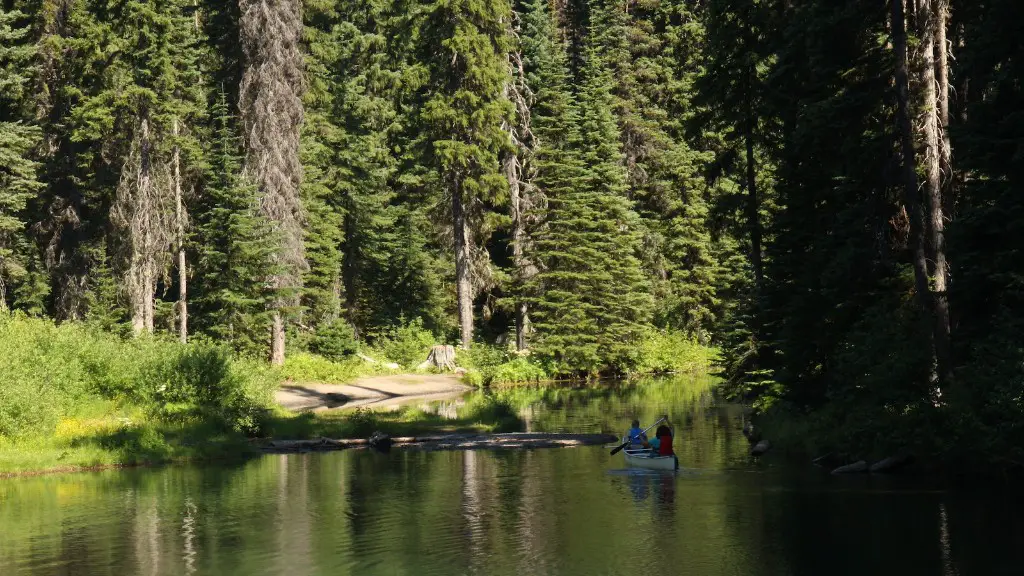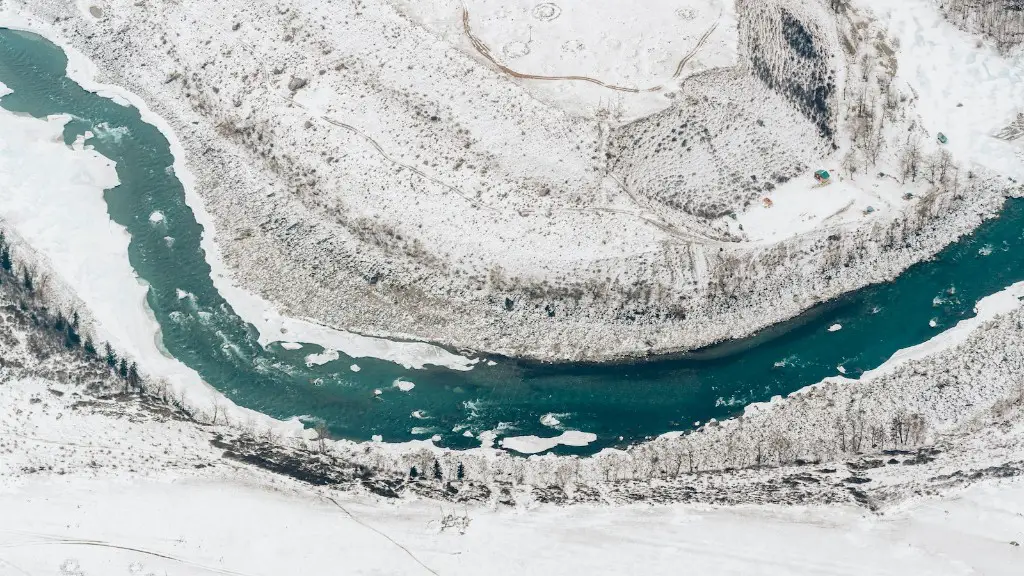The Mississippi River is the lifeblood of many communities the length of the United States, but is it being swallowed up? There have been a number of recent concerns about the health of this great river regarding both its water level and the quality of the water itself. It is an important question to answer, as the Mississippi River is a crucial resource for millions of Americans.
The Mississippi River’s water levels are in decline and the river is actually shrinking overall. In some places, the river’s depth has decreased by more than a foot which results in less water transport and recreational use. Additionally, the water temperature is on the rise, putting stress on the wildlife that inhabits the river. The rise in water temperature is attributed primarily to climate change, leading to increased air and water temperatures and reduced snowmelt that can replenish the river.
Agricultural Runoff
Pollution of the Mississippi River is also an issue. Agricultural runoff from planting and fertilizing is a major source of the river’s contamination. Nutrients from fertilizer are running off the farmland into the river, leading to the growth of algae and other aquatic plants. This lowers the oxygen level of the water and affects the fish and other wildlife that live in the river. Additionally, runoff from animal waste and sewage is another source of contamination to the river.
Urban Development and Dams
The increase in urban development near the river also has an impact as runoff from highways, urban streets, and other development initiatives fill the river with pollutants and sediment. The construction of dams has also had an impact in reducing the water levels in the Mississippi River. The dams slow the flow of the water, and prevent needed sediment from reaching the lower sections of the river, leading to erosion.
Prevention and Potential Solutions
More stringent regulations need to be implemented in order to prevent further contamination of the Mississippi River and reduce runoff from agricultural land. Educating farmers on how to store and manage fertilizer and other waste is a crucial step forward. In addition, new technologies and best practices should be embraced to reduce environmental impacts on the river. Urban runoff is another major concern, and the use of stormwater collection systems and green infrastructure can help to capture and manage this type of pollution.
Land Preservation
Land along the river can help to reduce erosion and protect from pollutants as well. Wetlands preservation and the establishment of conservation corridor can help to reduce runoff from farms and residential areas. Additionally, wetlands along the river can help to store and filter pollutants, keeping them out of the river itself. Finally, public outreach can help to educate communities about the issues facing the Mississippi River and why it is so important to protect.
Laws and Policies
In addition, the implementation of tougher laws and policies is essential. The US Environmental Protection Agency has taken a leadership role in developing more stringent water quality regulations to reduce contamination of the Mississippi River. States along the river have also enacted legislation to help protect and conserve the river, such as the Mississippi River Protection Act of 2019. This act provides funding for projects that help to conserve and enhance the ecosystem of the river.
Community Involvement
The importance of community involvement should also not be overlooked. Local citizens who live along the river can also work to protect it, such as by increasing awareness of environmental efforts and joining local groups to organize river cleanups, tree plantings, and other activities. In addition, conservation easements, which can provide permanent protection of river banks, are also a means to protect the health of the river. Through collaboration, everyone can play a role in the conservation and protection of the Mississippi River.
Technology
Finally, the use of technology can help to reduce the environmental impact of the Mississippi River. Sensors can be used to monitor and track water levels, as well as detect pollution and other changes in the river. Additionally, the development of new filtration and treatment technologies can help to reduce pollutants and increase the overall quality of the river.
Environmental Policy
Preserving the Mississippi River will require the adoption of comprehensive environmental policies and regulations. The need for increased investment in research, education, conservation, and restoration of the river is essential. In addition, incentives should be developed to encourage better land-use planning and water management. This could include the establishment of watershed conservation areas, water quality standards, and plans to update outdated dams. By developing an effective environmental policy, the health of the Mississippi River can be restored and preserved.
Restoration and Rehabilitation
Restoration and rehabilitation of the Mississipi River is also essential. Projects such as the Lower Mississippi River Conservation Committee are working to restore and protect the river. This can include the removal of sediment and pollutants, the planting of trees and wetlands, and the implementation of best management practices. Additionally, habitat restoration and reintroduction of native species to the river could help to improve the biodiversity of the ecosystem. Through these efforts, the health of the river can be improved and restored.
Conclusion
The Mississippi River is one of the most important rivers in the United States, and efforts to preserve and protect it need to be taken seriously. Through implementing tighter regulations, community involvement, land preservation, and restoration and rehabilitation efforts the health of the river can be maintained and preserved for future generations.


